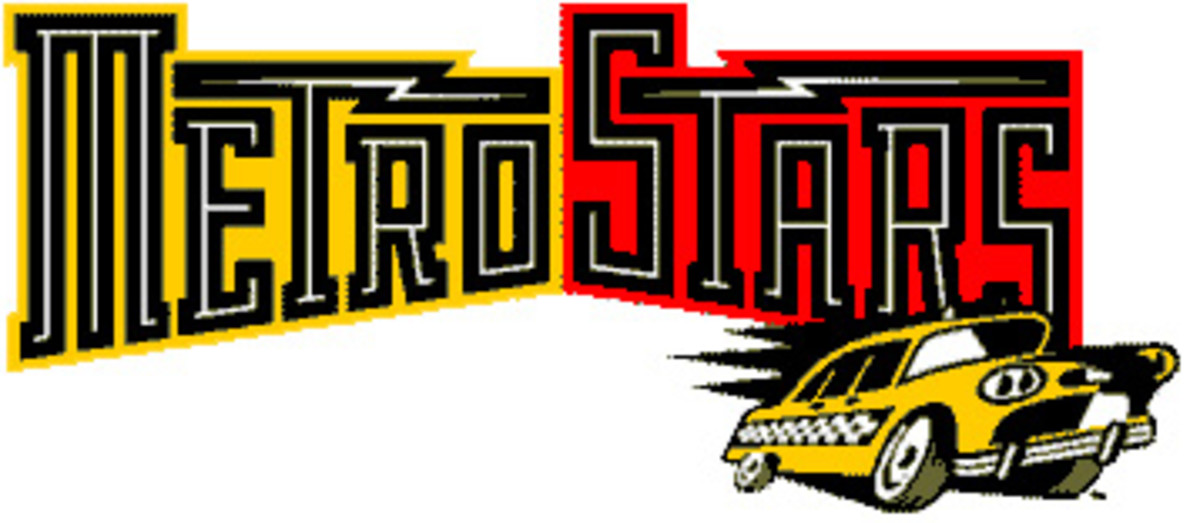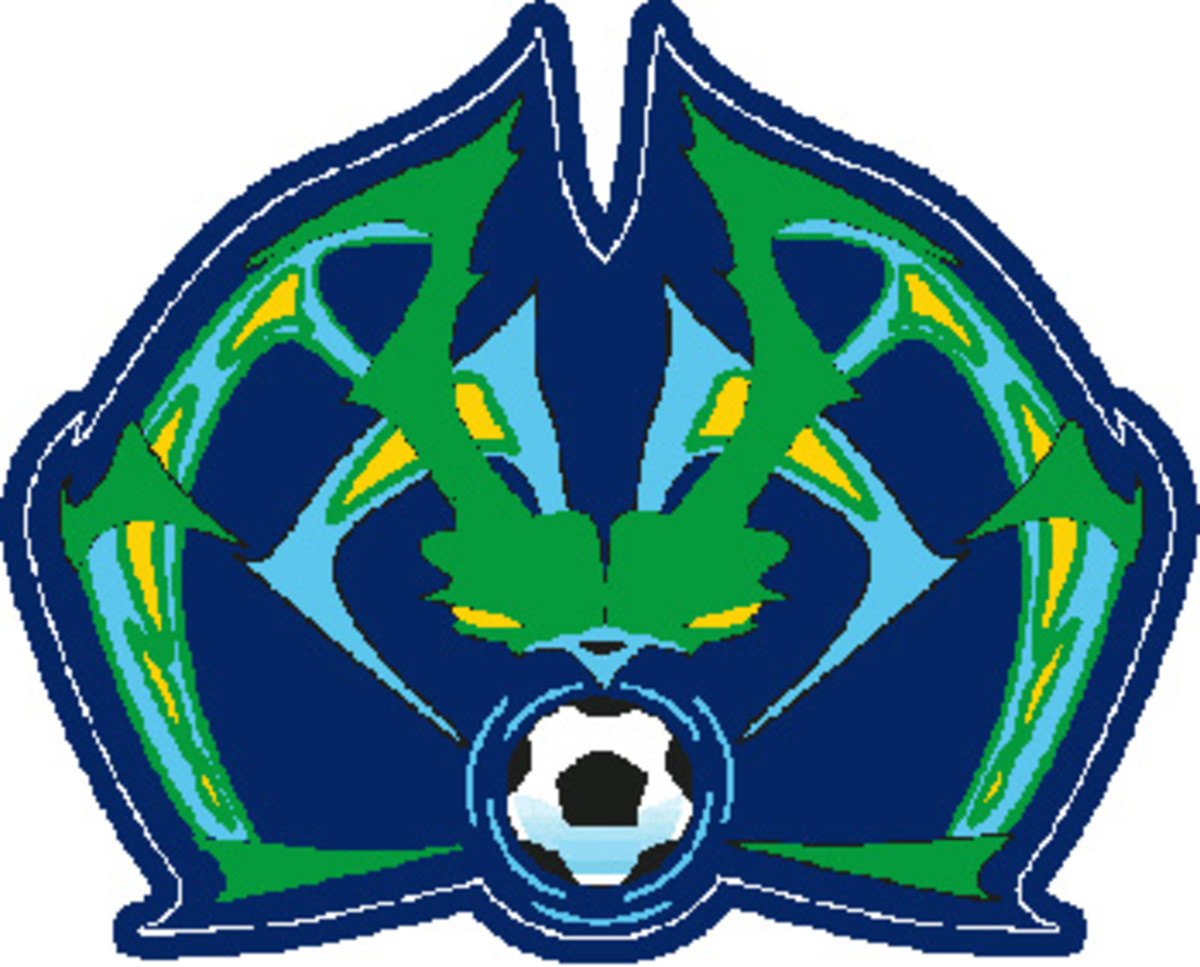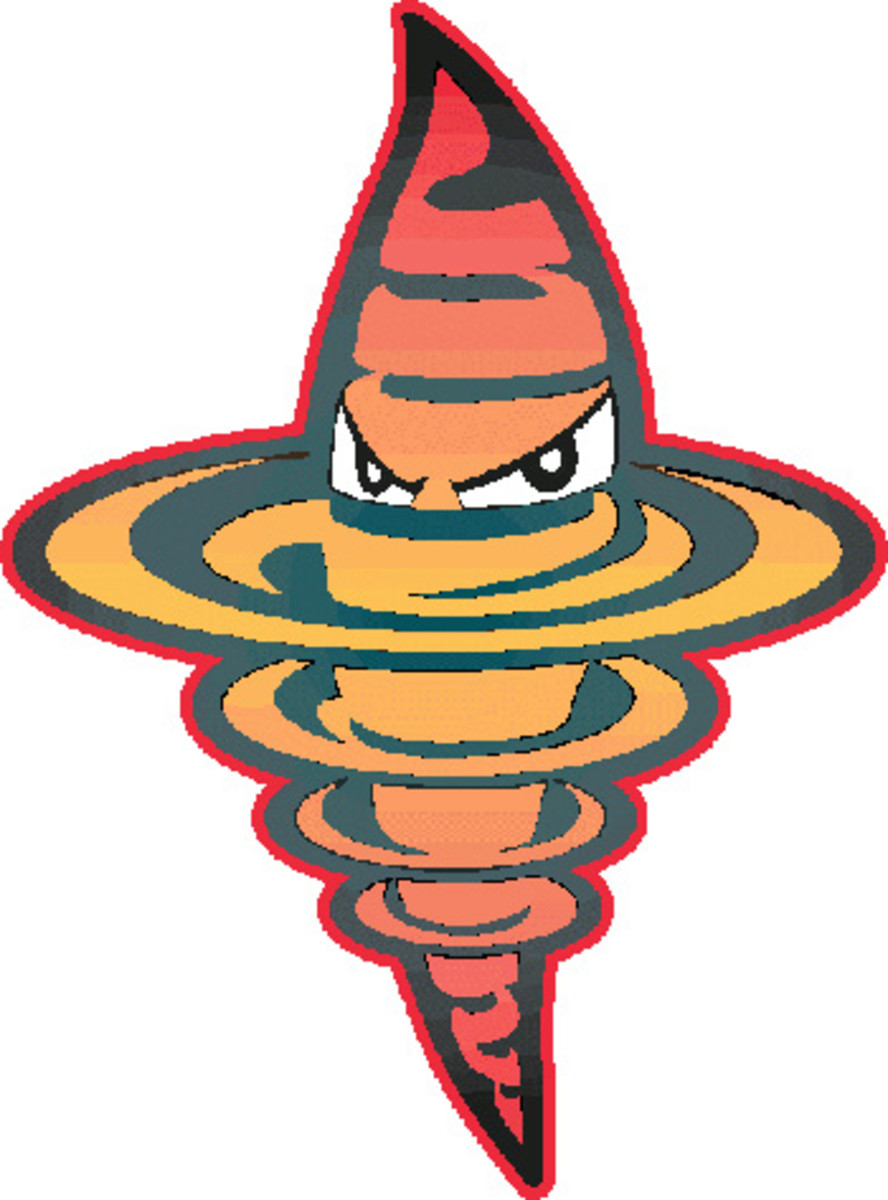MLS at 20: Epic original branding, logos for the league's first 10 teams

To reach its 20th season, MLS survived contraction, the shootout, empty NFL stadiums and Chivas USA. Its biggest hurdle, however, just may have been the marketers who expected fans to bond with kamikaze cabbies, green-winged cybermutants and a rainbow-clad team called the Wiz.
Rather than attempt to select timeless brands that might connect with a community or suggest an authentic, traditional soccer experience, the league and its outfitters tried to capture kids with nonsensical, 1990s kitsch (with a couple exceptions). It was a bad idea. Only one of the original 10 team logos survives. Four nicknames have changed and a fifth franchise, the Tampa Bay Mutiny, shut down altogether.
- STRAUS: Critiquing each MLS team's full 2015 jersey
Amid CBA talks, MLS commissioner Don Garber 'hopeful' of no stoppage
It almost got worse before it got better. The Chicago Fire, which kicked off in 1998, would have been called the Chicago Rhythm if Nike had its way. It’s been rumored that the logo was going to be a black and purple cobra–quintessentially Chicago.
Now, by and large, MLS is comprised of teams whose names reflect either their market or the sport itself.
It’s gone too far in a couple cases (there still are no Spanish kings in Utah), but that’s a small price to pay for progress.
For a look at how far MLS has come since those days when “some kind of astral-whirly” was supposed to bring people out to a soccer game, Planet Fútbol offers a look back at the original MLS brands and the hilarious, cringe-inducing marketing spin behind them. The "logo system" descriptions, likely written by the uniform manufacturers, were published by the league in its 1996 Inaugural Season Yearbook.
(Note: Grab and drag the slider tool in the center of each image to reveal the entire past and present logos)
Columbus Crew (Adidas)


Investor/Operator: The Hunt family and a group of local investors
Coach: Timo Liekoski
Marquee players: Brian Bliss, Doctor Khumalo, Brian Maisonneuve, Adrián Paz
Stadium: Ohio Stadium
Team Colors: Black, yellow and metallic silver
From Adidas: The Crew name was chosen for Columbus because it reflects the hard-working attitude of the community. The name suggests a work-hard, show-me-don’t-tell-me attitude, and it implies “teamwork”—people working together. The Crew logo features three construction workers, complete with hard hats and a distinctly serious look, reflecting the demeanor that is expected from “America’s Hardest Working Team.”
MetroStars (Nike)


Investor/Operator: John Kluge and Stuart Subotnick
Coach: Eddie Firmani
Marquee players: Roberto Donadoni, Tony Meola, Tab Ramos, Damian Silvera
Stadium: Giants Stadium
Team Colors: Black, red and yellow
Description:The logo system of the MetroStars taps into the electric energy of the city. The non-stop action of a town without a closing time. And, of course, the ever present taxi: the fastest way to get from point A to point B, but not necessarily the safest or the sanest. Painted the same colors as those Gotham go-carts, the Stars’ logos carry a hood ornament icon, a gas-guzzler-era typeface and the sheer guts of your average kamikaze cabbie.

New England Revolution (Reebok)

Investor/Operator: The Kraft family
Coach: Frank Stapleton
Marquee players: Mike Burns, Giuseppe Galderisi, Alexi Lalas, Jim St. Andre
Stadium: Foxboro Stadium
Team Colors: Red, white and blue
Description: “Revolution” was the winning entry in a “name the team” competition run in conjunction with the Boston Globe and Reebok International Ltd., the team’s official outfitter. Joseph Bracken, a 17-year-old high school student from Quincy, Mass., submitted the winning entry. He explained that the name seemed especially fitting given New England’s rich history and proud patriotic heritage. To convey the patriotic theme, Reebok apparel designers created a uniform bearing a flag motif insignia and red, white, and blue color scheme.
Tampa Bay Mutiny (Nike)


Investor/Operator: MLS league-operated team
Coach: Thomas Rongen
Marquee players: Cle Kooiman, Roy Lassiter, Carlos Valderrama, Martin Vasquez
Stadium: Tampa Stadium
Team Colors: Chlorophyll green, midnight navy, chrome yellow and tropical blue
Description: The Tampa Bay Mutiny logo system doesn’t have any rebellious sailors. No three-masted galleons. No rolling oceans. Just little green winged cybermutants from the dark blue depths of space. Inspired by the futuristic visions of video games, the logos and type suggest a mega-high tech, ominous force on the field. (The logo’s designers will even point out that the character isn’t controlling the ball with its feet, but with its mind—soccer reaches the fourth dimension.) Not your typical pirate story.

Washington D.C. United (Adidas)


Investor/Operator: Washington Soccer LP
Coach: Bruce Arena
Marquee players: Jeff Agoos, Marco Etcheverry, John Harkes, Juan Berthy Suárez
Stadium: RFK Stadium
Team Colors: Red, white and black
Description: In naming the Washington D.C. franchise, the focus was on international appeal. It was important to represent the community in an appropriate manner, while at the same time portraying a global and authentic appearance. The black and red logo features a large eagle (often symbolizing freedom and strength) with its wings spread and, underneath, three identical soccer balls superimposed in the middle of three stars. The United’s traditional design truly depicts the desired level of authenticity.
Colorado Rapids (Puma)


Investor/Operator: Philip Anschutz
Coach: Bob Houghton
Marquee players: Marcelo Balboa, Shaun Bartlett, Dominic Kinnear, Roy Wegerle
Stadium: Mile High Stadium
Team Colors: Blue, gold, green and black
Description: The Colorado nickname, along with the logo’s majestic peaks and swirling water, reflects the impressive geography of the region. “Rapids” also suggests speed and dynamism, qualities of play that are synonymous with PUMA’s flagship team. “Colorado” was intentionally chosen over “Denver” to reflect that the Rapids represent not just the host city, but the entire region. The Rapids are fortunate to draw fans from all over the state.
Dallas Burn (Nike)


Investor/Operator: MLS league-operated team
Coach: Dave Dir
Marquee players: Leonel Álvarez, Washington Rodríguez, Hugo Sánchez, Mark Santel
Stadium: Cotton Bowl
Team Colors: Red, black, green and silver
Description: The Dallas Burn logo system starts with the cowboy of the asphalt West: the loners, outsiders and rebels found on cycle jackets and gas tanks. With a street-inspired, aggressive typeface and a fire-breathing mustang, the burn logos reflect the raw horsepower of the team and the speed of the game—all mixed together in the combustion chamber of a hot Texas field. Brings new meaning to the phrase “getting burned on the pitch.”
Kansas City Wiz (Adidas)


Investor/Operator: The Hunt family and a group of local investors
Coach: Ron Newman
Marquee players: Frank Klopas, Preki Radosavljevic, Mike Sorber, Vitalis Takawira
Stadium: Arrowhead Stadium
Team Colors: Carolina blue and black
Description: The Kansas City nickname is a call to arms for the sports fans of the Great Plains to experience the wizardry of Major League Soccer. Breakaways, bicycle kicks and sprawling headers will bet he magic potion of the soccer wizards of Kansas City. In a bow to the majestic skies of the Great Plains, the Wiz logo’s dominant element is a rainbow, the magical “Old Faithful” of America’s Heartland.
Los Angeles Galaxy (Nike)


Investor/Operator: L.A. Soccer Partners, LP
Coach: Lothar Osiander
Marquee players: Dan Calichman, Jorge Campos, Mauricio Cienfuegos, Eduardo Hurtado
Stadium: Rose Bowl
Team Colors: Teal, gold, yellow and black
Description: The logo system for the Los Angeles Galaxy revolves around the one part of the cosmos that L.A. can rightfully claim: the sun. Spinning and energetic, the logo not only conveys the warmth and action of the city, but the intensity and movement of the game. The team’s colors (orange, yellow, blue and black) underscore the theme, while the retro-typeface echoes Art Deco L.A. As for that character, well, it’s creators dubbed it “Twizzle,” it’s some kind of astral-whirly, and it means business.

San Jose Clash (Nike)


Investor/Operator: MLS league-operated team
Coach: Laurie Calloway
Marquee players: John Doyle, Michael Emenalo, Ben Iroha, Eric Wynalda
Stadium: Spartan Stadium
Team Colors: Celery green, forest green, red, light teal and black
Description: The driving spirit of the San Jose Clash is the scorpion. Quick, lethal and mean. A striker that hits without warning. An attacker whose defense is just more attack. With shapes and colors that reflect the diverse ethnic make-up and heritage of the Bay Area, the logo system is derived from the soil it represents. And together with the team’s name, it promises strong and decisive action in every San Jose match.
MLS 1996 to 2015


